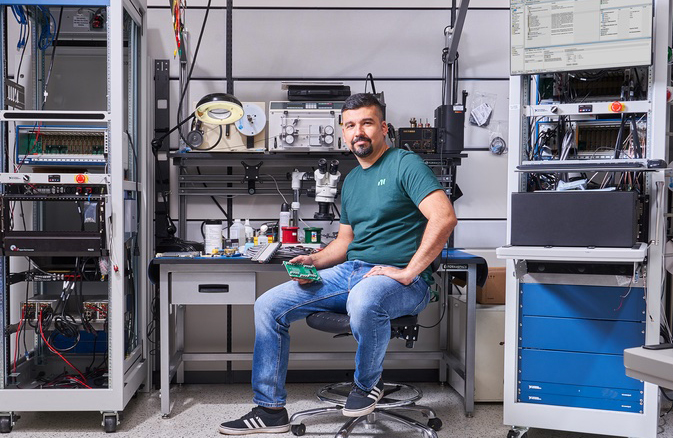‘End-of-line testing system for electric vehicle inverters’

Automotive inverters play a crucial role in the performance, efficiency, and overall reliability of electric and hybrid vehicles. It is imperative to ensure the quality and reliability of these components to maintain the effectiveness of the vehicles.
A webinar presented by NI, now part of Emerson, discusses a new technological approach for end-of-line (EOL) testing of automotive inverters. This approach integrates advanced functionality, performance, safety, and reliability testing protocols specifically optimized for automotive applications.
By adopting this new testing approach, automotive manufacturers and tier 1 suppliers can significantly enhance product quality in a shorter time frame. Attendees can reserve their spot for this webinar free of charge to learn more about the latest advancements in testing automotive inverters.
In addition to this webinar, the Spring Virtual Conference will feature other sessions, including one focused on enhancing EV efficiency through advanced passive technologies. This session, presented by TTI and Yageo, will delve into how advanced passive components like Low-ESR Capacitors, Low-Loss Inductors, and advanced Magnetic materials can minimize losses and improve performance in electric vehicles.
The utilization of Low-ESR Capacitors stabilizes voltage levels and enhances power conversion efficiency, while Low-Loss Inductors reduce core losses, optimizing energy storage. Advanced Magnetic materials, such as ferrite cores, further reduce losses and aid in thermal management, ultimately promoting increased efficiency and sustainability in EV designs.
Interested individuals can reserve their spot for this informative session for free. The Spring Virtual Conference will cover a wide range of topics in EV engineering, including motor and power electronics design, battery systems, testing, powertrains, thermal management, circuit protection, wire and cable, EMI/EMC, and more. The conference is scheduled to be broadcast live on April 15-18, 2024, providing valuable insights into the evolving EV engineering supply chain and ecosystem.





